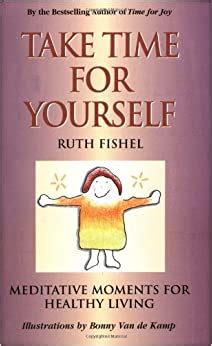A Quote by Albert Camus
The words that reverberate for us at the confines of this long adventure of rebellion are not formulas for optimism, for which we have no possible use in the extremities of our unhappiness, but words of courage and intelligence which, on the shores of the eternal seas, even have the qualities of virtue.
Related Quotes
And for adults, the world of fantasy books returns to us the great words of power which, in order to be tamed, we have excised from our adult vocabularies. These words are the pornography of innocence, words which adults no longer use with other adults, and so we laugh at them and consign them to the nursery, fear masking as cynicism. These are the words that were forged in the earth, air, fire, and water of human existence, and the words are: Love. Hate. Good. Evil. Courage. Honor. Truth.
To some it may seem old-fashioned to speak of virtue and chastity, honesty, morality, faith, character, but these are the qualities which have built great men and women and point the way by which one may find happiness in the living of today and eternal joy in the world to come. These are the qualities which are the anchors to our lives, in spite of the trials, the tragedies, the pestilences, and the cruelties of war which bring in their wake appalling destruction, hunger, and bloodshed
The entire routine of our memorized acquisitions, for example, is a consequence of nothing but the Law of Contiguity. The words of a poem, the formulas of trigonometry, the facts of history, the properties of material things, are all known to us as definite systems or groups of objects which cohere in an order fixed by innumerable iterations, and of which any one part reminds us of the others.
The advice I continually give to young writers is this, "Learn to paint pictures with words." Not just once upon a time, but ... In the long secret dust of ages, beneath a blue forgotten sky, where trade winds caress the sun bleached shores of unknown realms ... See, as much as there are words in poetry, there is a poetry in words. Use it, stay faithful to the path you have set your heart upon and follow it.
I think that a lot of things are hard to read if you're not in the vocabulary flow of that particular discourse. I sometimes forget that even though the words I'm using are fairly ordinary words, the concepts around which they cluster, which are the long concepts of literary tradition, may not be familiar to an audience.
The definitions of humanism are many, but let us here take it to be the attitude of those men who think it an advantage to live in society, and, at that, in a complex and highly developed society, and who believe that man fulfills his nature and reaches his proper stature in this circumstance. The personal virtues which humanism cherishes are intelligence, amenity, and tolerance; the particular courage it asks for is that which is exercised in the support of these virtues. The qualities of intelligence which it chiefly prizes are modulation and flexibility.
If a man of good natural disposition acquires Intelligence [as a whole], then he excels in conduct, and the disposition which previously only resembled Virtue, will now be Virtue in the true sense. Hence just as with the faculty of forming opinions [the calculative faculty] there are two qualities, Cleverness and Prudence, so also in the moral part of the soul there are two qualities, natural virtue and true Virtue; and true Virtue cannot exist without Prudence.
A large part of our attitude toward things is conditioned by opinions and emotions which we unconsciously absorb as children from our environment. In other words, it is tradition—besides inherited aptitudes and qualities—which makes us what we are. We but rarely reflect how relatively small as compared with the powerful influence of tradition is the influence of our conscious thought upon our conduct and convictions.
Being a slow reader would normally be a deficiency; I found a way to make it an asset. I began to sound words and see all those qualities - in a way it made words more precious to me. Since so much of what happens in the world between human beings has to do with the inconsideration of language, with the imprecision of language, with language leaving our mouths unmediated, one thing which was sensuous and visceral led to, in the use of language, a moral gesture. It was about trying to use language to both exemplify and articulate what good is.
Sound words can't be understood through formal study of the language alone. They're felt when you immerse yourself in the culture or lifestyle that becomes a part of you. The Japanese language is abundant with onomatopoeia. Even though I've lived in Japan a long time, sound words are still an uncertain territory. And I think new words are being created every day. Even when I don't know a word I can sometimes connect it to a meaning using the sensations produced by the sounds, which feels like I'm playing with words.
There's often a distressing disconnect between the good words we speak and the way we live our lives. In personal relations and politics, the mass media, the academy and organized religion, our good words tend to float away even as they leave our lips, ascending to an altitude where they neither reflect nor connect with the human condition. We long for words like love, truth, and justice to become flesh and dwell among us. But in our violent world, it's risky business to wrap our frail flesh around words like those, and we don't like the odds.
One of the major symptoms of the general crisis existent in our world today is our lack of sensitivity to words. We use words as tools. We forget that words are a repository of the spirit. The tragedy of our times is that the vessels of the spirit are broken. We cannot approach the spirit unless we repair the vessels. Reverence for words - an awareness of the wonder of words, of the mystery of words - is an essential prerequisite for prayer. By the word of God the world was created.








































